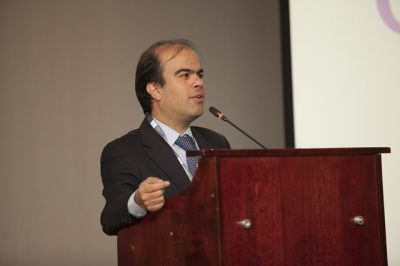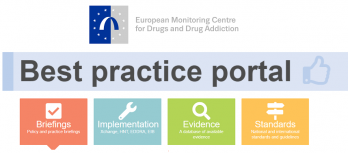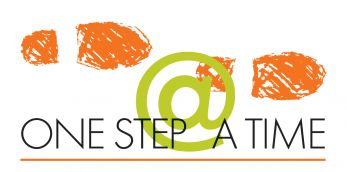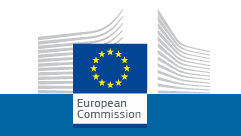"COPOLAD contributes to countries in Latin America and the Caribbean getting to know each other more and learning to develop policies with good ideas and management"
ReturnPublished on 24/01/19
Carlos Charme Fuentes is the National Director of the National Service for Prevention and Rehabilitation of Drug and Alcohol Use (SENDA) Since 3 October, 2018, after respective contest being held by the Senior Public Management. The Director of the service has extensive experience in the public sphere, where he has participated in the development and implementation of various public policies related to crime prevention, citizen security and social programmes. Charme served as Executive Secretary of the Security Commission which developed the Government Programme of President Sebastián Piñera on public safety, containing matters relating to the prevention of alcohol and drugs. Between 2010 and 2014, he served as head of the National Coordination Division of the Undersecretary for Crime Prevention and Chief of Staff of the Under-Secretary. Later, he was Executive Secretary of the Association of Municipalities for the security of the East zone of the metropolitan region and since 2014 he has carried out several consultancies in matters of public policies related to the prevention of crime.

- What are your priorities for Chilean drug policy when assuming the national direction of SENDA?
Looking at the guidelines of our government programme, our focus is on prevention of drug and alcohol consumption. To provide responsible and evidence-based information about the health and social harms associated with the consumption of these substances. In this sense, the main concern today is our children and adolescents, who, according to studies conducted by SENDA, present an alarming consumption of drugs, especially alcohol and marijuana. In the last 10 years, the prevalence of marijuana use in the school population has gone from 15.1% in 2011 to 30.9% in 2017, while the perception of risk over the frequent use of this drug had a sharp fall between 2011 and 2013, from 48.0% to 21.1%, stabilizing at 21.9% in 2017.
To the phenomenon of low perception of risk among young people about marijuana use, we must add a decrease in parental disapproval. Thus, when students are asked about whether their parents would be extremely upset if they knew they had tried marijuana, a very important drop is observed from 2011 to 2017, from 82,3% to 67,7%.
In the case of marijuana, we have seen in Chile that, along with the political debate and a number of communication campaigns and social networks promoting its legalization, its consumption has normalised. That is why our decision, in compliance with the government's mandate, is to implement a preventive policy that incorporates the whole of society, namely, the family, the education centres and the state agencies, through local governments.
We firmly believe in public-private collaboration and also that the greater the commitment of citizenship to this task the better the results will be. Therefore, we want to adapt to the Chilean reality models of prevention that have proved successful and allow us to better protect our children and adolescents. We also want to incorporate monitoring and evaluation into our treatment and rehabilitation centres. For now, what we know is that there is a gap in the area of rehabilitation and our work, in addition to being oriented towards growing in this aspect, it will also consist of correctly reading the efforts that are being made.
- SENDA is leading with great success the validation of previously agreed quality criteria within the framework of COPOLAD. As a country that has advanced in the accreditation of care services, what are in your opinion key elements for a country to incorporate accreditation as a measure to improve its care services and prevention programmes?
The first thing which facilitated much of the work in Chile was to have an institution dedicated to the matter in order to then guide the accreditation process. Our country, for example, has the Superintendent of Health. Another key element is to develop incentives associated with the accreditation process. In this sense the training and the innovation within preventive centres and programmes are fundamental. It is important to remember that this is a medium-and long-term process, it is not something that happens overnight, because those institutions that have to go through such a process must prepare and train on how to carry out such a process.
- UNGASS 2016 provided unequivocal support for the implementation of drugs policies based on evidence of effectiveness, for which the development of drug observatories that monitor existing data is imperative. To what extent can the impulse given from COPOLAD to the observatories reinforce one with a solid trajectory like that of Chile and how does Chile assist the strengthening of those in other countries of the region within the framework of COPOLAD?
We are very proud to have a high quality observatory in Chile. Our country has a culture of having responsible and verifiable information for decision-making in almost all areas, and without a doubt the subject of the drugs phenomenon is fundamental. COPOLAD has been a great ally for sharing this information in addition to our systems to obtain it in the region of the Americas and in Europe. Thanks to it, Chile can offer help to countries in the region that need to develop these systems.
But we also need to learn, for example, how to implement a registration system of new psychoactive substances and to coordinate with other countries to make a large territory database on the phenomenon of drug use, including supply and traffic. In addition, we need to cross drug use data with other phenomena in our populations, always with a territorial approach for a good mapping.
With that information, more efficient and decisive-effective public policies are designed and implemented. In this context it is worth noting that Chile is a signatory of UN international drug conventions, respectful of them and fully supporting the UNGASS 2016 conclusions.
- Chile has led, designed and implemented 2 national editions of the virtual courses of COPOLAD in the subject of prevention, one in 2012 and another in 201 7and in which 80 people in total participated, 40 in each course. What are the advantages of this training format for a country like Chile and what added value does it provide to Chilean professionals to take these courses?
One of the great advantages of this training modality, which is the value added for Chilean professionals, is that it is possible to share it with students -professionals- of the entire region. This generates knowledge exchange between what is done in Chile and what is done in other countries. Thus, learning from other experiences and presenting one’s own is key to improving the work that is done at the national and local level.
- How does SENDA value the exchange of best practices between the CELAC and EU countries facilitated through COPOLAD, and which do you consider the main advances produced in your country following the cooperation with the European Union in the drugs field?
Being related to the European Union in these issues is highly relevant. It has allowed us to learn about many good practices, we have learned about prevention, treatment/rehabilitation, based on social integration, in addition to observatories and information systems. Within the European continent we find many high-income countries, but also good ideas, good management, good designs and appropriate implementations.
In the same way, COPOLAD contributes to countries in Latin America and the Caribbean, with more similar realities, but diverse, getting to know each other more and more, and learning to develop policies with little budget, but with good ideas and good management, which is also very important to us.
I take this space to thank the investment made by Europe in our countries, which need help from the developed world, in different degrees. Working together, recognizing that the drug problem is global, is a great contribution to our fight against it.
The European Commission is preparing a third phase of this programme, therefore COPOLAD will be back at the beginning of 2021.









